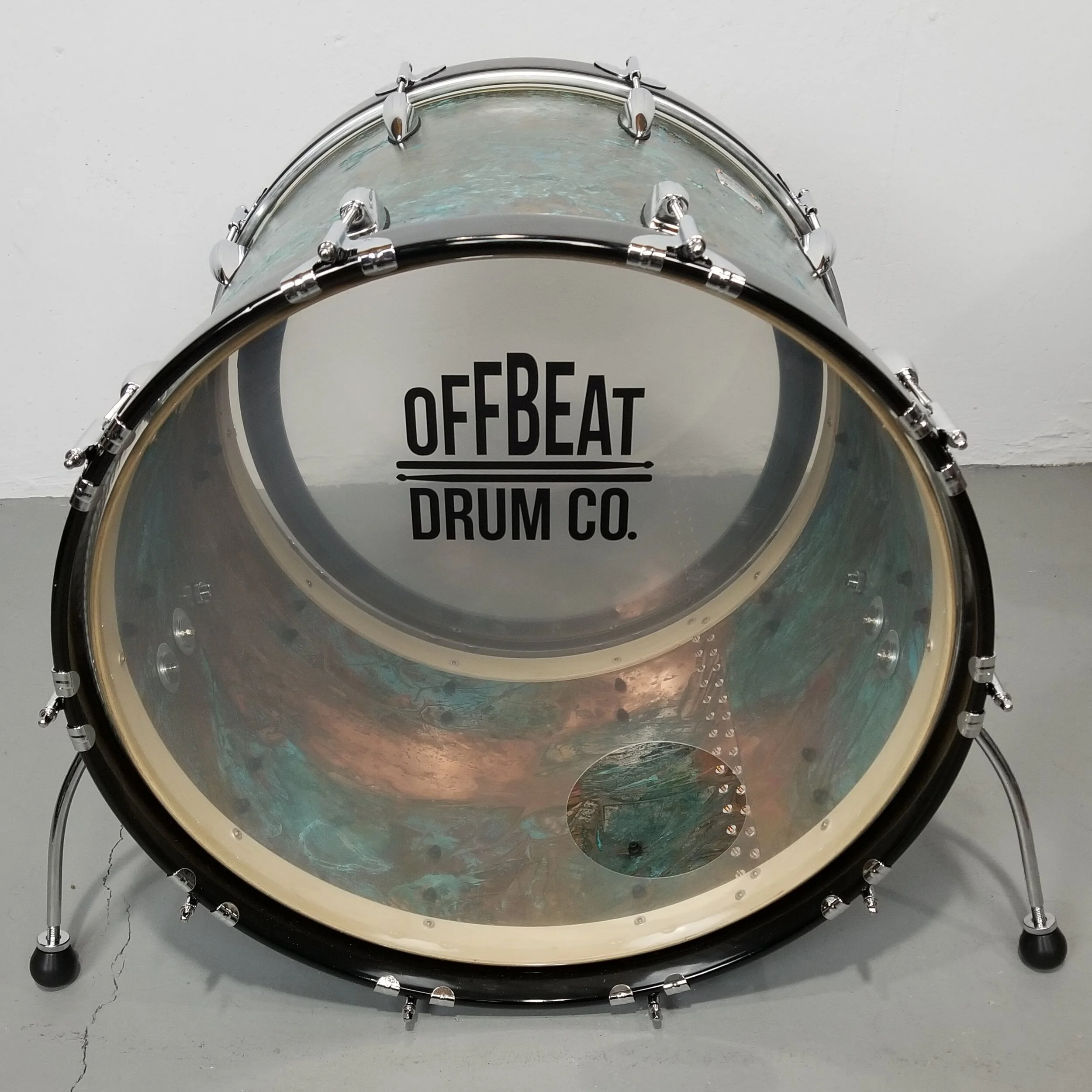Metal drum kits offer several benefits over other, more traditional styles of drums. Aside from their eye-catching appearance, a metal shell produces a punchy and focused sound that can help cut through a mix onstage or produce a full rich recording in the studio. Metal drum kits can be used in a variety of genres, from rock and metal to jazz and fusion. They can produce a wide range of tones and sounds depending on the player's technique and the drumheads used. The different base metals help amplify different frequencies so whether you’re looking for a warm low-end, a bright high-end or something in the middle there is a material that suites your needs.
Unlike wood, which can vary in density and grain pattern from piece to piece, metal drum kits offer a consistent sound across the entire kit. Metal drum kits are also incredibly durable, they are less likely to warp or crack than wooden drum kits, making them ideal for heavy use.
Overall, metal drum kits are a great choice for drummers who want a durable, versatile, and visually striking drum kit with a powerful sound.
Copper
Copper has unique acoustic properties that make it a popular material for musical instruments such as cymbals, gongs, and drums.
Features:
Density: Copper is a relatively dense metal, which gives it a warm and rich tonal quality. It produces a full, round sound that is particularly well-suited for lower frequencies.
Resonance: Copper is a highly resonant material, meaning that it can vibrate at a high frequency when struck. This allows for a sustained and powerful sound that can easily be heard over other instruments.
Damping: Copper has a high damping coefficient, which means it can absorb and dissipate vibrations quickly. This can help to prevent overtones and unwanted ringing, producing a clearer and more defined sound.
Flexibility: Copper is a relatively flexible material, which makes it a durable and long-lasting material, able to withstand frequent use and wear without deteriorating or becoming damaged.
Aluminum
Aluminum’s acoustic properties make it a popular material for musical instruments such as drum kits and percussion instruments.
Features:
High Frequencies: Aluminum produces a bright and crisp sound, with a lot of high-end frequencies. This makes it ideal for creating cutting sounds that can be easily heard in a mix, particularly in genres such as rock and metal.
Low density: Aluminum is a relatively lightweight material, which means that it can produce a quick and responsive sound often described as “punch” or “attack”.
Damping: Aluminum has a low damping coefficient, which means that it can vibrate freely and produce a lot of sustain. This can create a bright and lively sound that is ideal for percussion instruments.
Durability: Aluminum is a strong and durable material that can withstand a lot of wear and tear. This makes it ideal for use in musical instruments that are played regularly, such as drum kits.
Brass
An alloy of copper and zinc, brass is a popular material for musical instruments, particularly those in the brass family, such as trumpets, trombones, and tubas.
Features:
Tone: Brass has a warm and rich tone, with a lot of harmonics. This makes it ideal for creating expressive and emotive sounds in musical instruments.
Resonance: Brass has a high resonant frequency, which allows it to vibrate quickly and produce a sustained sound. This makes it ideal for creating long sustained notes.
Damping: Brass has a moderate damping coefficient, which means that it can absorb and dissipate vibrations quickly. This can help to prevent overtones and unwanted ringing in musical instruments, producing a clearer and more defined sound.
Steel
Steel is a versatile and durable material that is commonly used in the construction of percussion instruments.
Features:
Bright and cutting sound: Steel produces a lot of high-frequency content, which makes it ideal for creating sharp and precise sounds that can cut through a mix.
High density: Steel is a relatively dense material, which means that it can produce a powerful and forceful sound. This makes it popular for creating heavy and aggressive sounds, particularly in drumming styles such as hard rock and metal.
Damping: Steel has a moderate damping coefficient, which means that it can absorb and dissipate vibrations quickly. This can help to prevent overtones and unwanted ringing in musical instruments, producing a clearer and more defined sound.
Durability: Steel is a strong and durable material that can withstand a lot of wear and tear. This makes it ideal for use in musical instruments that are played regularly, such as drum kits.




















